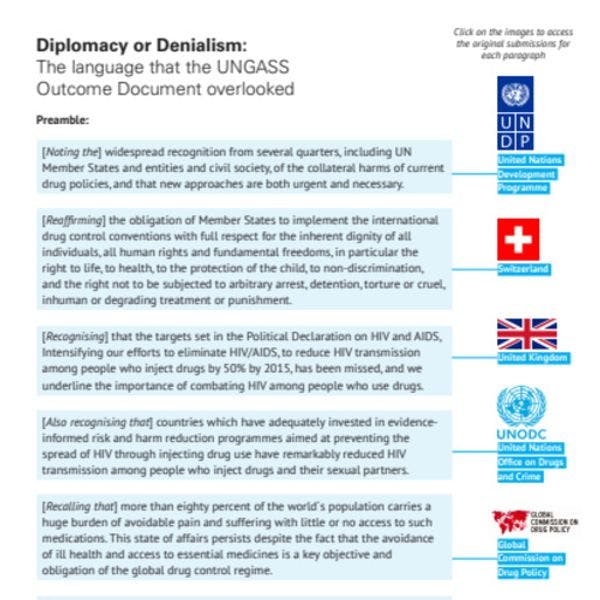Diplomacy or denialism? The language that the UNGASS Outcome Document overlooked
On 19th April 2016, 193 UN member states will come together at a UN General Assembly Special Session (UNGASS), and will formally approve an Outcome Document on “the world drug problem”. This document was finalised a few weeks ago by the 54 countries of the UN Commission on Narcotic Drugs (CND) in Vienna.
The document negotiations have been a fraught and difficult process of consensus-based decision making, and diplomatic horse trading taking place behind closed doors and excluding UN agencies, regional bodies and civil society. More than 100 member states, either not part of the CND or without permanent representation in Vienna – mostly from the Global South – played no role whatsoever in the negotiations. These member states will have no opportunity to debate the UNGASS Outcome Document draft at the UNGASS itself because, bizarrely, the document is set to be agreed at the beginning of the meeting.
Substantive contributions to the UNGASS process did, however, come from a wide range of stakeholders. But any proposed language that challenged the failings of the current system, or called for meaningful changes to the status quo, was systematically ignored, marginalised, vetoed, watered down or overlooked in the negotiations.
The document below highlights just a small selection of the strong, progressive and evidence-based language on issues that are overlooked or insufficiently reflected in the Outcome Document. All of this language was on the table during the negotiations – submitted by member states, regional bodies, UN agencies and others.
Read the full press release here.
Keep up-to-date with drug policy developments by subscribing to the IDPC Monthly Alert.
